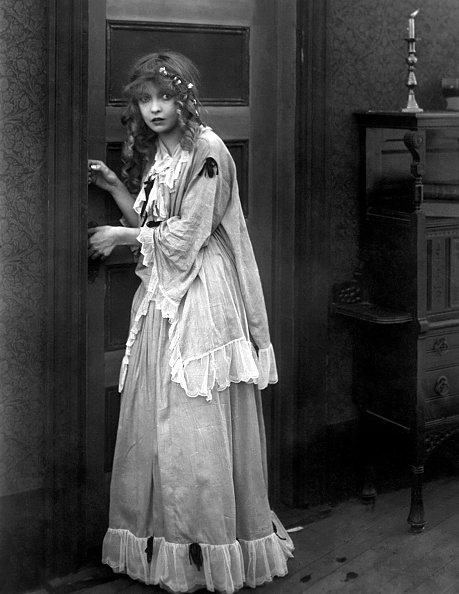You have /5 articles left.
Sign up for a free account or log in.

Gish in 'Birth of a Nation'
Getty Images
The film Birth of a Nation has been studied for years for its introduction of film techniques that went on to transform filmmaking. But the film is judged by more than its technique. The 1915 work is full of racist images. White people, many in blackface, portray (and denigrate) black people as dangerous and unintelligent. The Ku Klux Klan is glorified. The film was wildly popular with white audiences who cared nothing about its racism.
Last month, Bowling Green State University stripped the name of one of the film's stars from a campus theater. The university did so after students sought the change and a group of scholars studied the issue and urged the change in name.
This week, dozens of prominent Hollywood figures -- James Earl Jones, Helen Mirren, Martin Scorsese, plus a number of leading film scholars -- released an open letter calling for Bowling Green to keep the names of the late Lillian Gish (who was a star in the film) and her sister on the theater. (Gish and her sister grew up in Ohio but were not alumnae of the university.)
The letter has renewed discussion of how figures from the past should be judged -- in particular if they are associated with racist actions.
Gish shouldn't be judged by this one film when she made so many over a long career, the letter says.
"[D. W.] Griffith’s film takes an indefensible, racist approach to the history of the Civil War and Reconstruction. But as even the university admits in its task force report on the theater’s name, Lillian was no racist," the letter says. "Her work in many films, such as Griffith’s own Intolerance (1916), a dazzling four-part overview of world history in which she plays the symbolic mother figure rocking the cradle of humanity and tolerance; Griffith’s deeply moving 1919 interracial drama Broken Blossoms; the 1955 masterpiece The Night of the Hunter, in which she plays a beatific protector of endangered children; and the 1967 film of Graham Greene’s The Comedians, in which she challenges Haiti’s dreaded secret police and demonstrates her outspoken belief in universal brotherhood among races and nations."
The letter goes on to say, "For a university to dishonor her by singling out just one film, however offensive it is, is unfortunate and unjust. Doing so makes her a scapegoat in a broader political debate. A university should be a bastion of free speech. This is a supreme 'teachable moment' if it can be handled with a more nuanced sense of history."
The university has noted that its action has no impact on freedom of speech or the study of the history of the film or anyone's right to view the film. Further, the university is maintaining a scholarship in Gish's name.
The university quotes Gish's words to justify the decision. The board resolution removing her name states, "In a 1983 interview with a BGSU publication, Lillian Gish talked about actors being accountable for the roles they choose: 'I feel strongly that actors and actresses today need to take responsibility for what they say and do in film, even if they are only acting. They don’t have to do the script … Film is the most powerful thing that has been invented in this century.'"
Further, the resolution stated, "Upon reviewing the totality of Lillian Gish’s acting career, no evidence was found that she denounced or distanced herself from director D. W. Griffith or her link from the film The Birth of a Nation."
Bowling Green issued a statement this week in response to the letter from the actors in which it noted that campus leaders from various groups studied the issue -- and came to the view that the honor for Gish, given her connection to the film, sent a hostile message to some students.
"Bowling Green State University has a primary responsibility to serve its students, faculty and staff, and an obligation to create an inclusive learning environment. That obligation outweighs the university’s small part in honoring the Gish sisters’ legacy," the statement said.
In April, Chapman University removed posters of the film from prominent places in its film school after students objected to the centrality of a work full of racism.




